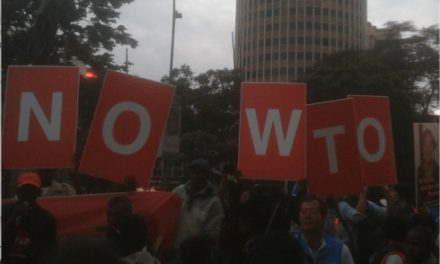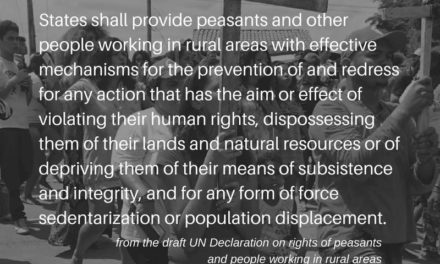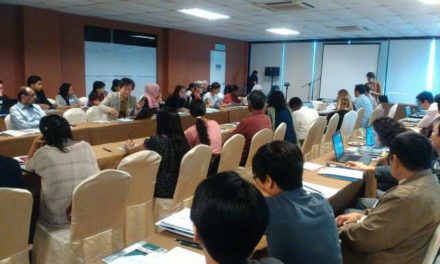by Kamal Malhotra*
The 1997 World Bank/ IMF Annual Meetings in Hong Kong were carefully planned well in advance to be a celebration of both first (South Korea, Taiwan, Hong Kong and Singapore) and second generation( Thailand, Malaysia, Indonesia) Asian miracle economies. Taking place less than three months after Hong Kong’s reintegration into the People’s Republic of China, they were also supposed to celebrate China’s imminent ascendancy to miracle status.
In the words of Dr. Stanley Fischer, First Deputy Managing Director of the International Monetary Fund (IMF) in Hong Kong on September 19, 1997, East Asia, propelled by an astonishing record of sustained economic growth, has within less than two decades improved the living standards of more people, more rapidly, than at any other time or place in history. He was referring not just to the first generation tigers or dragons, but also to the second generation tiger cubs and China.
Indeed, the World Bank simultaneously celebrated China’s ascendancy to miracle status by releasing its China 2020 report in Hong Kong in September, whose principal author, Vikram Nehru indicated that China could totally eliminate poverty by the year 2020 if it continued its economic liberalisation.
Interestingly and ironically, even Oxfam International, the network of ten Northern NGOs renowned for its critical advocacy of World Bank/IMF economic reform and other policies, appeared to largely agree with this assessment in its report Growth with Equity: An Agenda for Poverty Reduction which was released at the Hong Kong meetings in a separate press conference on 22 September, 1997. The report, while critical of some aspects of miracle economy policies, nevertheless suggested that East and Southeast Asia, overall, should be viewed as an example for other developing countries in Asia, Africa, Latin America, the Caribbean and the Pacific. It said, among other things, over the past three decades the (East and Southeast Asia) region has experienced the most rapid and sustained growth recorded this century, and since the 1960s, the incidence of poverty in the region fell from one-in three to one- in-ten.
Miracle or chimera?
While a lot of this is true and should be applauded, and Oxfam International, unlike Dr. Stanley Fischer, made the important point that it is not economic growth per se that is important but the degree to which it has been effectively transformed into poverty reduction, the timing of the World Bank, the IMF and even Oxfam International could not have been worse for them. Nevertheless, the poor timing transformed a predictably deadening round of World Bank/IMF meetings ( this time with boring mantras about economic growth miracles) into a lively debate about whether Southeast Asia actually represented a miracle or a chimera ( delightfully defined by the American Heritage Dictionary as a fire-breathing monster with the head of a lion, the body of a goat, and the tail of a serpent or an impossible or foolish fantasy. Take your choice!).
This is, of course, the burning question, given the current financial, environmental (as the time, a smoke haze caused by thousands of bushfires was covering much of Southeast Asia) and the underlying structural crises that have overtaken all the aspiring second generation miracle economies since early 1997. The financial crisis, in particular, dominated both the media and the official Annual meetings in Hong Kong and dampened the celebration considerably.
Thailand was clearly the main culprit in the currency and broader financial crisis and has quickly achieved pariah status. Amusingly, even the Philippines, the erstwhile sick man of Southeast Asia, whose macro-economic fundamentals remain much weaker than those of Thailand, is trying to distance itself saying that its fundamentals are better.
Indonesia, with the raging forest fires in Kalimantan and Sumatra which have enveloped most Southeast Asian countries in terrible smog and haze was the main environmental culprit.
Dr. Mahathir Mohammed of Malaysia, not to be outdone, used his keynote address at the Bank/ Fund Annual meetings to attack (Western) currency speculators calling such speculation immoral, and unacceptable and indicating that it should be banned. By doing this, not only did he momentarily steal the ignominious limelight from Thailand and Indonesia (for which I am sure their government representatives in Hong Kong will be eternally grateful) but he also caused a run on the Malaysian ringgit and other Southeast Asian currencies which continues unabated as a result of his recent similar remarks in Chile (for which I am sure his regional counterparts will never forgive him!).
As a result of the financial crisis and its deeper roots, even the most diehard believers of the economic growth miracle path were jolted and are pausing for thought, at least briefly! Indeed, even Dr. Stanley Fischer, in his September 19, 1997 address at the seminar Asia and the IMF said the recent market turmoil in the region has raised two fundamental sets of questions: the first, about the sustainability of the Asian miracle; and the second, about the risk of capital account liberalisation.
The second, in particular, was the focus of much of the media and the official Hong Kong meetings not only because of the current crisis but because the IMF was pressuring its Board of Governors to allow a change to its Articles of Agreement to allow capital account liberalisation as a conditionality for future loans to its borrowing members. At the time of its creation over half a century ago, the IMF’s founders explicitly prohibited and even frowned upon it having any role in the area of a country’s capital as opposed to trade account.
As Dr. Fischer put it in his talk on Capital Account Liberalisation And The Role of the IMF, for the IMF, Hong Kong has for months appeared likely to be the meeting of the Capital Account and of Fund resources — the annual meeting at which our Executive Board would be given the mandate to complete its work on an amendment of the Articles of Agreement to promote capital account liberalisation, and at which agreement could be reached on a quota increase and a special issue of Special Drawing Rights.
Bad timing
Given this objective, the Thai financial and currency crisis and its contagion effects across the region could not have come at a worse time. While the Fund got an SDR increase, even though not the amount it had wanted, its efforts to achieve capital account liberalisation have been delayed for at least two to three years.
While Dr. Mahathir’s speech can take some of the credit for this, even if some of it was rhetorical and not entirely factual, Thailand can take the lion’s share of the credit for thwarting, or at least postponing change to the IMF’s Articles of Agreement.
As a direct result of the crisis, many Southeast Asian and other developing countries argued forcefully at the meeting that the liberalisation of the capital account prematurely in the context of globalisation prevented adequate governmental regulation and enforcement and was the main reason for the current Southeast Asian financial crisis. They also said that financial liberalisation is more often the source of economic difficulties and risk rather than benefit.
The September 20, 1997 Hong Kong communique of the Intergovernmental Group of Twenty-Four (G-24) on International Monetary Affairs summed up the prevailing sentiment well. Among its many points on this topic were the statement that Ministers emphasise that the capital account liberalisation process could put additional stress on economies that are already straining to adjust to globalisation, and that further work on the orderly liberalisation of capital movements was necessary as a prelude to any amendment of the Fund’s Articles. It also emphasised that liberalisation of the capital account should not be made a condition for the use of Fund resources and the treatment of foreign direct investment and restrictions for (national) security reasons should be outside Fund jurisdiction. Furthermore, while recognising that domestic policy weaknesses contributed to the current crisis, Ministers emphasise(d) the need to acknowledge the role of speculative activities in the external environment that provided the backdrop against which the financial crisis spread, through contagion effects, to a number of countries both within and outside the region, including those with sound macro-economic fundamentals.
These and similar statements from other developing country ministers are an enormous setback to the Fund’s agenda and its desire to write what it considers the unfinished chapter of the Bretton Woods institutions (ie. capital account liberalization). Unfortunately for them, this chapter will remain unfinished for at least some time, since there can be no amendment to the IMF’s Articles of Agreement without the approval of Southeast Asian and G-24 countries, since any such amendment will require a minimum 85 per cent vote in favour.
* Kamal Malhotra is Co-Director of Focus on the Global South. He has, for many years, been a critic and observer of the multilateral banks and is presently a member of the international steering committee for the Structural Adjustment Review Initiative (SAPRI), a tri-partite participatory research project involving the World Bank, governments and civil society.









